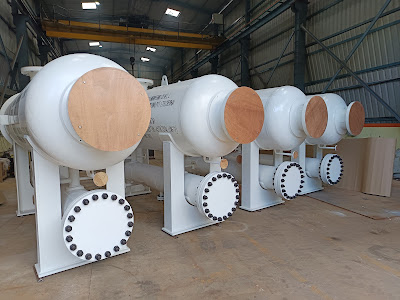Why Every Natural Gas Plant Needs a Reliable Filter Separator System
When you want to maintain the purity and quality of gas in a natural gas plant for safe and efficient operations, you will need the help of a filter separator. A vital component of a filtration system, a filter separator works to effectively remove contaminants like liquids and other particles that can hinder processes or even damage equipment if left unchecked. But what exactly is a filter separator, and how does it play a crucial role in the natural gas industry? In this write-up, we will dive into the workings of filter separator systems, look at why they are indispensable in every natural gas plant, and how they help keep operations running smoothly and safely.
How Filter Separator Systems Prevent Contamination in Gas Processing
When using filter separators, it is important to understand that the separators address the issue of contamination with the help of a two-stage separation process. A centrifugal or cyclonic mechanism in the first stage forces heavier droplets to separate from the gas stream. A drain chamber then effectively collects these contaminants and prevents them from moving further down the pipeline. The second stage of filtration employs a fine mesh or coalescing filter. This captures smaller particles and fine aerosols, which ensure that only clean, purified gas continues onward. This layered approach not only enhances the effectiveness of the filtration system but also extends the life of downstream equipment, reducing maintenance costs and preventing unexpected downtime.
By efficiently removing impurities, filter separator systems help natural gas plants maintain a higher standard of gas purity. As mentioned, this process protects downstream equipment, reduces the frequency of maintenance, and minimizes the risk of costly operational disruptions. Reliable filter separator systems are indispensable for any natural gas plant that seeks safe, efficient, and contamination-free gas processing.
Key Benefits of Reliable Filter Separator Systems
As we all know, the stakes at a natural gas plant are high and this makes having a reliable filter separator not just an addition to the works but an absolute necessity. Imagine a steady flow of gas traveling through the plant’s network of pipes, valves, and compressors. Now, imagine that same flow loaded with contaminants like moisture, and hydrocarbon aerosols. When there is no effective filtration system, these impurities can quickly wreak havoc, corrode equipment, clog components, and ultimately cause costly downtime. This is where a dependable filter separator steps in, ensuring clean gas, smooth operations, and reduced maintenance costs.
The key benefits of a reliable filter separator system go far beyond basic filtration. To begin with, it preserves equipment health by removing harmful particles before they reach vital machinery. They are also responsible for reducing wear and extending the lifespan of costly plant components. By consistently purifying the gas stream, the filter separator protects against rust, scaling, and corrosive buildup, helping maintain an efficient, safe work environment.
Another standout benefit is cost efficiency. When your filtration system operates effectively, you will face fewer maintenance demands, less frequent part replacements, and a much lower risk of unscheduled shutdowns. Reliable filter separators help plants avoid sudden expenses while improving operational uptime—a win win in any situation.
The most important benefit, however, is the filter separator’s role in safety. Filter separator systems support the plant’s broader safety goals by preventing potential hazards associated with contaminant buildup, such as blockages or corrosion-induced leaks. In an industry where safety is paramount, a quality filter separator provides peace of mind, helping ensure that operations are as secure as they are smooth.
Choosing the Right Filter Separator System for Your Plant
To maximize efficiency and for equipment protection, you must choose the right filter separator system for the natural gas plant. While it must be understood that not all filtration systems are created equal, certain critical factors will determine the perfect fit for your processes and needs. Having the right filter separator not only enhances the gas purity, but it also reduces operational costs and improves safety and extends the life of your equipment.
To begin with, consider the specific contaminants present in your gas stream. Some plants may deal with high levels of liquid hydrocarbons or water vapor. Identifying the primary impurities will help determine whether you need a high-efficiency coalescing filter, a dual-stage separator, or a system customized for multi-phase separation. The filtration efficiency of your filter separator system will largely depend on matching the equipment to these requirements.
Further you will need to know that flow rate and pressure can play a very important role in selecting the optimal system. Your filter separator must handle the plant’s peak gas flow without causing a drop in pressure. A drop in pressure can lead to inefficiencies or equipment stress. By considering the capacity and pressure specifications, you can ensure a smooth, uninterrupted flow of clean gas through the entire system.
Going further, we will look at material durability and maintenance requirements. Systems made from corrosion-resistant materials such as stainless steel can better withstand harsh environments, requiring less frequent replacement and upkeep. Maintenance intervals and ease of filter replacement are factors that can save significant costs over time. A reliable filter separator system will strike the right balance between filtration efficiency and ease of maintenance, reducing unexpected downtime and keeping operational costs in check.
When you carefully evaluate these aspects, you will be well-equipped to choose a filter separator system that meets the demands of your plant and supports long-term operational success.



Comments
Post a Comment